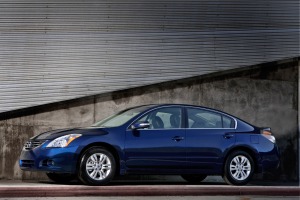
We've heard it said that going to a dealership is like swimming in shark-infested waters. So before you head out to go car shopping, it is important to know what sharks will attack and which ones will just swim by. To help you get acquainted with the roles of the sales department staff, we've broken down who does what, along with some tips on how to deal with them.
In the order you are apt to meet them when you visit the dealership (with the exception of the Internet manager), here's the list:
Internet Manager
If you want to avoid almost everyone else on this list, you'll be well served to deal with the Internet manager. As the name implies, this person is in charge of selling cars via the Internet. This means the main point of contact is via the Internet but they also meet face-to-face with shoppers and arrange test-drives and the delivery of the car. In our experiences, we've found that online shopping can get you the best deal with the least hassle.
In part, this is because Internet managers are paid by how many cars they sell — not by commission. When purchasing a vehicle via the Internet, you can also usually arrange to have it delivered to your home. This is more convenient, and helps you avoid the finance and insurance office, where additional products are sold in a high-pressure environment.
Receptionist
If the salespeople hovering outside the building haven't approached you yet, the receptionist will be your first point of contact at the dealership. The receptionist answers the phone and can direct you to a salesperson, if you've made an appointment. If you're only at the dealership to look around, they can be the quickest way to obtain a brochure about a car you're interested in — without having to deal with a salesperson.
Salesperson
Though there are plenty of capable and ethical salespeople, they often get a bad rap. In some cases this reputation is well-deserved, fueled by goals that are in conflict with yours. Salespeople want to make the most money on the car, while you want the lowest price possible. Ultimately, both parties want that car to leave the lot in your possession.
The salesperson will show you the vehicle, arrange the test-drive and negotiate a sales price. In many cases, they will begin the financing process by taking information for a credit application. A knowledgeable salesperson is helpful in pointing out certain features on the car, but don't let them be your only source of information.
Take full advantage of our model reviews and test-drives so you are not relying solely on the information you receive from the dealership. If you want to delve deeper into the mind of a salesperson, take a look at our "Confessions of a Car Salesman."
Assistant Sales Manager (a.k.a. "the Closer")
A step above the salesperson, the assistant sales manager usually steps in when it is time to talk numbers. It's his job to close the deal, which means gaining a firm commitment from you. Though they have the term "manager" in their title, they don't have ultimate power to decide the price.
When you make an offer on a car, they usually take it back to the sales manager in the "tower" (the sales manager's office, which looks out over the car lot and showroom floor). This makes them a type of mediator between the sales manager and the consumer. As a result, they try to avoid looking like the "bad guy," since they are only relaying the message from this faceless source.
Sales Manager
The sales manager is the person behind the curtain. This is where most of the power rests when deciding how much they want you to pay for your new vehicle. For many buyers, it can be frustrating not to deal with this person face-to-face. The only way to influence him is to remain firm in your negotiations, and not be afraid to walk away from a deal that is going in circles or taking way too long to conclude.
Finance and Insurance ("F&I") Manager
Going to the F&I office seems like a simple formality. You've already made a deal on your vehicle, and the only thing left is to sign a couple of forms to make it official. If only it were that simple....
The F&I manager's job is to increase the dealership's profit by selling you additional products and services such as extended warranties, paint protection, LoJack or an additional alarm. These items are often marked up exorbitantly. Many consumers fail to negotiate these products or fail to decline them and end up paying more than they need to.
However, the F&I manager also arranges financing. Often, the interest rates offered by the automakers are the lowest available, so this can be a valuable step in the process. There are a number of pitfalls that can occur here, so it's important to be prepared. We have a firsthand account of what it's like to work as an F&I manager in our confessions series.
General Manager
The general manager of the dealership is the highest authority there. He or she presides over both the sales and service departments. If you have a problem with your vehicle that hasn't been resolved by anyone in the normal chain of command, the general manager might be your next alternative, assuming you can contact them.
Porter
You won't have much interaction with the dealership porters, but the term is used quite often, and you should at least know who they are. A porter handles the cleaning, moving and delivery of vehicles at the dealership. If you've purchased a vehicle online, and arranged to have it delivered to your home or office, a porter will usually accompany the Internet sales manager to give him a ride back to the dealership.
Before heading into the shark tank, also be sure to brush up on your negotiating skills and remember the 10 steps to buying a new car. When the time comes to take your car in for service, be sure to check out the Roles of the Service Department Staff.









